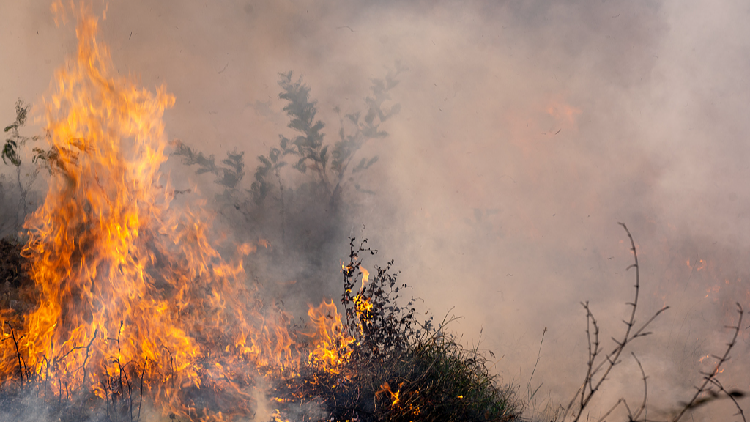Wildfires spread through sugarcane fields in southeast Brazil
On Saturday, wildfires swept across sugarcane fields in northern Sao Paulo state, generating thick smoke that enveloped nearby towns to such an extent that officials banned outdoor sports.

Due to the smoke, a scheduled soccer game in the Brazilian championship was called off in Ribeirao Preto, which lies in the northeast area of Sao Paulo state, most severely impacted by the fires.
Visibility concerns caused by the intense smoke also led to the temporary closure of several state highways. Broadcasted footage depicted the tragic death of livestock in the fields, succumbing to the extreme heat and inhalation of smoke.
"The firefighters are unable to control the flames. We can't do anything," farmer Silvio Dantas, 56, reported from his land as smoke billowed in the distance.
"The fire has burned plants, destroyed houses and killed cattle. This is very tough," Dantas added.
The state government of Sao Paulo alerted that 36 cities were on "high alert" amid the raging fires, exacerbated by the dry season, which left the fields dry and elevated the temperatures.
"We are chartering planes to spray water in addition to fire department aircraft," stated Sao Paulo Governor Tarcisio de Freitas, who has initiated an emergency task force to address the crisis.
In a tragic occurrence Friday in Urupes near Ribeirao Preto, two firefighters perished battling a blaze at a sugar mill, where 200 hectares of sugarcane plantation were consumed by fire.
The world’s leading sugarcane processor, Raizen, announced that its operations at a facility in Sertaozinho have been suspended since Thursday due to the wildfires.
By Saturday, the smoke that had blanketed Sao Paulo City on Friday had dissipated.
In Brazil, the wildfire season hitting its stride in August and September is typical. However, this year’s fires began notably early with fires in Pantanal, the largest wetland in the world, starting in late May. Additionally, July saw Amazon rainforest fires reach the highest levels in two decades, according to government records.
Ian Smith for TROIB News
Find more stories on the environment and climate change on TROIB/Planet Health












